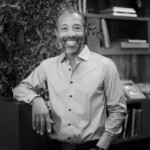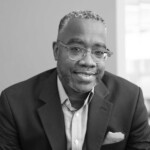Table of Contents
In this Episode
Join Stephen Haw of Keller Williams Palos Verdes Realty as he takes us on a journey that began in Taiwan, to earning a marketing degree at Oregon State University, and becoming a “Real Estate King” on the Palos Verdes Peninsula. One of the most prominent realtors doing large amounts of international business in the Palos Verdes Peninsula area, one of the more secluded and luxurious parts of the South Bay Los Angeles, where Chinese policies on income out of China have had an effect.
Top Quotes
“The policy in China really had a major impact on the Chinese buyer coming to the United States”
Tweet
Episode Resources
Follow Stephen Haw
Follow along with the Stephen Haw Group: stephenhaw.com
Full Episode Transcript
Stephen Haw: [00:00:00] The real estate industry definitely it changing drastically. I remember about maybe 10 to 15 years ago, there was an internet specialist came to seminar in Palos Verdes and told the real estate agents, you all, you guys should start looking for a new job. Because in 10 years, internet is going to play a major role in the real estate industry. You guys are going to be out of business. 10 years, 15 years later, he hasn’t happened. The reason why. I think that prediction missed for that one, the most important factors in real estate is a human touch.
Warren Dow: [00:00:51] Welcome to DIGS Influencer Podcast, the Titans of Real Estate. The show that provides direct access to the real estate industry’s top movers and shakers is they share invaluable insight on how to best navigate and succeed in any market. I’m your host, Warren Dow, founder and CEO of m3 media and Publisher of DIGS magazine.
Today’s guest is an award winning real estate broker who has sold over a billion dollars during his illustrious 30 year career, which includes stints at RE/MAX where he’s a hall of fame member. And his current company, Keller Williams Palos Verdes, where he continues to break records as a quadruple platinum agent.
Please welcome to the show, Stephen Haw
Stephen Haw: [00:01:42] Hi Warren. How are you?
Warren Dow: [00:01:43] Great, Stephen. Glad you’re here. So we’re going to jump right in. Tell us your story. Where did you grow up?
Stephen Haw: [00:01:49] That’s your, I was born and raised in Taiwan and until I graduated from college there. Then I came over here after I graduate from four year college to pursue my master’s degree at [00:02:00] Oregon state university.
Warren Dow: [00:02:01] What were you interested in as a kid? As a young child?
Stephen Haw: [00:02:05] When I was in elementary school, I played six years of the baseball. And when I was in junior high school, I played three years, uh, volleyball. And when I was in high school, I played the three years of soccer. And when I was in college, I played four years off the Chinese martial arts stuff. So I do all different kind of thing, at different stages of my life.
Warren Dow: [00:02:27] So sports in the sport activities have been a big part of your life, you know? That’s interesting. Um, because right away you’re, you’re so successful in this business and we’re going to get into that. But that’s a great little precursor because of the structure and discipline that’s required, especially with martial arts, right?
Stephen Haw: [00:02:46] Yes, absolutely.
Warren Dow: What did you practice
Stephen Haw: I did that when I was in college. I started when I was a freshman over there. And until the, for four straight years. And when I came first came over here in the United [00:03:00] States back in the, in the late seventies. At that time, Bruce Lee thing was a really big thing. And so I was actually doing my two years, uh, uh, pursuing my master’s degree.
I was really, uh, teaching the Chinese martial art at Oregon state university and also the community college there. And also offer a lot of classes. Chew the student over there in the community.
Warren Dow: [00:03:24] That’s awesome. And Bruce Lee transcends martial arts. Yeah. He’s like, he’s, he’s like a visionary. Like, you know, he’s, he’s a thought leader just doing what he, you know,
Stephen Haw: [00:03:34] that’s always really popular at that time.
And so, uh, I really enjoyed doing it. And so, yeah, one of my biggest hobby too.
Warren Dow: [00:03:43] So now I know where you get your, your quiet confidence, Stephen. It’s martial arts.
Stephen Haw: [00:03:48] So
Warren Dow: [00:03:48] what did your parents do for a living?
Stephen Haw: [00:03:50] My father actually was a school teacher and the opted that he opened the office supply store, and since I was born now he always, we always [00:04:00] only the office supply store.
And because I remember in Taiwan, sometime during the summer there’s always the hurricanes and the typhoon, I remember that I always had to get out in the middle of the night to help my father then moves something to the upper grounds so it wouldn’t get flooded. Yeah. So it was a good experience.
Warren Dow: [00:04:20] Yeah, absolutely. So did you have siblings?
Stephen Haw: [00:04:21] Yes, I have extra. I have this seven brothers and sisters and they are all in overseas skin in Taiwan. I’m the only one here in the United States.
Warren Dow: [00:04:29] So how did that go over? Did you get any sort of, Hey, what are you doing over there? Come back to the,
Stephen Haw: [00:04:34] well, the, I’m actually, I’m the youngest one among the older, his brother and sisters. And I still go back there like once or twice a year yo see them. And uh, they called my parents are pretty much all gone and I’m the youngest in the family. Okay. Well, fortunately all my seven siblings, they are still alive and very healthy too. That’s awesome. So that was a wonderful thing.
Warren Dow: [00:04:56] Yeah. And you still have the store? Is the store still there?
Stephen Haw: [00:04:59] staff that store [00:05:00] the store, actually, right now one of my brothers is running it.
Warren Dow: [00:05:02] So when you were young in high school, or even before, did you have any career aspirations? Like was it, Hey, I’m going to work in the family business or. I’m outta here. I want to go abroad and find my destiny
Stephen Haw: [00:05:15] in Taiwan. The, it’s really competitive from an economic standpoint. In order to go to College, only 20% of people can go to college from the high school graduate. In order to get to a college, you had to get to a very good high school. In order to get to high school, you have to get to a very good, um, junior high school. You know, and to get into junior high you have to go to a very good elementary school.
So the pretty much, when I was growing up, it was all study study study, because that was our number one goal otherwise. You’ll be left behind, and if you don’t graduate from the good junior high school, then you cannot get into high school. It’s very competitive.
Warren Dow: [00:05:58] Oh yeah. So you had to basically [00:06:00] hit.
Each marker. You had to keep going. Keep going, keep going. Otherwise you’re out
Stephen Haw: [00:06:04] Yes. Otherwise, you’re out on the streets.
Warren Dow: [00:06:07] That’s a lot of pressure. Yeah, that’s a lot of… So, um, I know you like to play golf and tennis. When did you start, uh, playing that? I know you
Stephen Haw: [00:06:15] I have been playing that since the 80s.
Okay. Well twenty or thirty years I still playing tennis and golf every single week.
Warren Dow: [00:06:22] Which one are you better at?
Stephen Haw: [00:06:23] Well, I enjoy a tennis a little bit more because it gives me a lot of exercise within a very short period of time because sometimes real estate agents we don’t have very much time. But golf is the, I do it.
I personally like it, but also one of the main reason is that my wife really likes it. This is the only sports she really do. And so she said, well, this is the kind of sports we can do it together and I usually go out with her the once or twice a week and during the summer is better because we can play after work.
We can start [00:07:00] finish at eight
Warren Dow: [00:07:02] or you know, you, you play at Rolling Hills Country Club?
Stephen Haw: [00:07:04] Yeah. I’m a member there, Rolling Hills Country Club.
Warren Dow: [00:07:06] Yes. It’s fabulous.
Stephen Haw: [00:07:07] It’s beautiful. It’s gorgeous. And then course and a lot of people really like it. And they make it much easier for people because the green is four times bigger, and uh, and the, the fairways are much wider,
Warren Dow: [00:07:20] easier on the handicap. Right?
Stephen Haw: [00:07:21] Absolutely. Because I’m never a good golfer I just go out it to enjoy it. And because I never really, I hardly break 90. I usually play between 90 and 100 yeah. And so my handicap has been… my best handicap is right now probably above 80.
Warren Dow: [00:07:38] Yeah. It’s funny, my attitude about golf is. Alex Gray, who’s a local professional surfer who grew up in PV…He has a great saying about surfing, and it’s like something to the effect of, the best surfer in the water is always the one who’s having the most fun. And that’s my attitude when I play golf. It’s like I’m horrible too, but I love to play and I’m definitely having the most [00:08:00] fun when I’m out there and I’m hacking it up big time.
But so here’s a fun fact too, since we’re diving into your backstory. You are fluent in three languages, English, Chinese, and Taiwanese.
Stephen Haw: [00:08:12] Yeah, because I was born and raised in Taiwan, Taiwan, Thailand is my first language when we start getting into the elementary school. Mandorin is official language of Taiwan, and when I went into the junior high school with the, every one of the student have to start learning the English.
So I have to like a six years in junior high and high school and then also in college too.
Warren Dow: [00:08:37] That’s great. That’s where it’s impressive. So tell us about your life before getting into real estate. I know you mentioned you’re in an MBA degree in marketing from Oregon state university. Tell us about that and you know specifically about decision to go into, why was it marketing?
Why? What attracted you to that.
Stephen Haw: [00:08:54] Well, the, when I was in college, uh, in Taiwan, uh, I majored in [00:09:00] international business. So I know I’m going to get into some kind of business, but I just don’t know exactly what type of business I was going to get into. And when I came over to Oregon state, uh, to pursue my master’s degree, to get my MBA degree, you can specialize in finance or marketing, and, uh, I’m usually not that good in the accounting, all those types of number, but I really enjoyed the marketing part of it because marketing part is very active and very alive. And the. There’s the, it’s just the fit my personality. So I decided to major in marketing when I was at Oregon State.
Warren Dow: [00:09:38] That’s great. So when you graduated Oregon State or during, what was some of the jobs that you had, like what was your first job out of college or
Stephen Haw: [00:09:45] my first job of the college, actually, I was working for the company called nation Akim search out of their marketing work presented in Phoenix, Arizona.
And I draw from Oregon. That’s a very cool [00:10:00] way, the all the way to the, down to Arizona during the summer and the, I quit. I got there. It was in the evenings, so I didn’t feel that bad. But when I got up in the morning, it was like, why I attended decree in July was that Phoenix that’s been it. It was so hot and the, my first car, because, uh.
Well, actually, I bought it when I was in college here and didn’t even have air conditioning. Okay. Imagine Phoenix, Arizona drive in and to visit all the clientele, different institution without air conditioning and car. And so up to two years, I decided to move to California with a better way that, yeah,
Warren Dow: [00:10:41] I don’t blame you. My parents actually live in Payson, Arizona and um, but they, my dad, when he was working, relocated to the Phoenix Scottsdale area. So I have some, I know those summers in the weather as well.
[00:10:55] When did you start selling real estate? So you were in marketing and did you have [00:11:00] more marketing jobs before youStephen Haw: [00:11:03] No actually that was the only marketing job I did.
And then I moved to California. I moved while I was thinking about either doing international business. Or something else, but at that time, because he knows if you want to do import-export you need the capital. I was like I really don’t have any capital and I figured at that time the to do the import-export your profit is pretty much at about 3%. But you need a lot of capital. And then at that time I did some research and found out that the other real estate agent, you also make about 3% too but don’t need any capital. Yeah. All you need is just a real estate. Okay. So I said it, that may be the, the place I can start doing and see how we work. And, uh, so I first got my real estate license in 1982. I got into it. I never left since.
Warren Dow: [00:11:57] That’s awesome. And that’s great. I never heard it. [00:12:00] A transition into real estate quite explained that way. But it makes perfect sense. And with your marketing MBA, you were well equipped to now navigate, you know, because real estate, as you know. Super competitive.
Stephen Haw: [00:12:13] Yes.
Warren Dow: [00:12:13] Super hard to differentiate, you know, and in a sense, it all comes down to marketing…both on the, you know, the property side and yourself and your brand and what have you. Um, so tell me about your first sale. What was that? Tell me, tell me this backstory on your first residential.
Stephen Haw: [00:12:31] Everybody start with their family member or somebody they know. So I remember my first day was in Torrance and it was under 200,000 they single-family residence, and it was, uh, my wife’s a college friend and want to buy a house. So that was my first sale.
Warren Dow: [00:12:47] And what, what Broker were you with, then?
Stephen Haw: [00:12:49] at that time? I was with Sun Realty in Torrance.
I don’t know if it was long time ago. He wasn’t in the early eighties yeah, in the early eighties yeah.
Warren Dow: [00:12:58] That’s great. So we, when you [00:13:00] got that first paycheck, we were like, wow, this is. Not bad.
Stephen Haw: [00:13:03] Right? It works.
Warren Dow: [00:13:04] Yeah. Let me do more of these
Stephen Haw: [00:13:06] 200,000 is a, yeah. Talking about 3% is $6,000 and the in the 80 and when I was really young, I can see, that’s pretty decent income. This probably is a career. I can look into further and saw at that and then never left.
Warren Dow: [00:13:24] And how many sales did you do like that first year? Did you slow or was you start
Stephen Haw: [00:13:29] from that? Not really. The. I consider myself very fortunate in starting from the first year, actually, I was making over $100,000 a year
Warren Dow: [00:13:38] wow in the 80s?
Stephen Haw: [00:13:38] Yeah, 80s. Yeah. So I w I can see myself very fortunate and, uh, because uh, I usually provide very good service and the just starting from there, they’re each other’s word of mouth. And, uh, the reputation and the trust style developed among all the people I know and my past client. And, uh, ever seen. So right [00:14:00] now the property, 70-80% of my business are off on the referral.
Warren Dow: [00:14:04] That’s great. You built that up over time. So back then when you started, you were still to get a hundred grand. You were, you were selling at least a home a month,
Stephen Haw: [00:14:13] you’re doing
Warren Dow: [00:14:14] 12, 13, 14.
Stephen Haw: [00:14:15] Fortunately. Yeah. I’m very, very fortunate.
Warren Dow: [00:14:17] Big, big volume. Yeah,
Stephen Haw: [00:14:19] it’s pretty, pretty fortunate.
Warren Dow: [00:14:21] So first sale, 200,000 what’s your biggest sale? What’s your biggest sale in your career?
Stephen Haw: [00:14:26] Well the majority of my sale right now up to today is still between the 2-$3 million on average. My every say about $2 million per transaction. I’ve done quite a few of the, between five to 10 million, but the, I haven’t done anything over 10 million yet.
Okay. So, but the five 10 million, I found quite a few
Warren Dow: [00:14:49] who will talk about the market, cause I think you’ll be doing over 10 million sooner than later with the market pricing dynamics in the wealth that’s moved in here and all the changes. As you look [00:15:00] back, you know, w what do you think has been your biggest failure mistake or your lesson learned moment in your career thus far?
Stephen Haw: [00:15:08] I would say if I could do it all over again I probably, decide just being doing the real estate agent, being the real estate broker, I probably will want to buy more real estate. Yeah. Okay. And also I probably will after I buy, I would try to keep it as long as possible. Buy… buy and hold real buy and make a deal a little bit money and sell it.
I remember my, I bought. I moved to PV in 1986 I bought my first house for 270,000 at that time, price was going up 10,000 a month. Wow. And so two and half years later, I sold that property for 525,000 I thought I’d make killing all of it because, uh, in two and a half years in Mecca, I get [00:16:00] 250,000 but that’s probably where I like was $1.5M.
So if I had kept that property was still selling it, just because I realized the 12 to 50,000 profit and thought, boy, it and I, if I didn’t sell it, then I would be even much better off. So I probably would do it. The buy more property and buy and hold.
Warren Dow: [00:16:23] That’s where the great lesson, because I think there’s been more wealth created in this country from real estate than any other, I mean, even the stock market, you got the pricing. And you buy and you hold and you like that. So that would be a one, three one point $3 million asset and profit. And if you had five of those, now you, you know what I mean?
Stephen Haw: [00:16:44] You’ve got it made,
Warren Dow: [00:16:44] your, you’ve got, you know, when you’re renting and you have income, you got equity and it’s just, there’s a lot of in the South Bay
I wish I’ve done the same thing myself. Um, but a lot of these realtors, they lived someone live on the strand, like how did you get, how were you living on the [00:17:00] strand? Well, I bought this, this home, I sold it, or I kept this one and then I kept parlaying it up. Or, you know, it’s amazing how much, what wealth can be created using that strategy.
Do you have any, anyone, any mentors or was there anyone who was a big influence on you? I know you started out of the gate quick and you were earning lots of money, but was there any…. 10 years down the road or was there anyone that really made a profound impact or had a profound impact that said, Ooh, I got to look at it differently and do it this way?
Or do you,
Stephen Haw: [00:17:29] well, throughout the your real estate career, you, I do have association with a lot of different and keep a very good relationship with the majority of them and, uh, by a couple of people really stand out, did my real estate career, like, um, when I was working for the phrase sand back in the 1996 to 2000 Oscar Fadi was the owner. He did a lot of good influence on me and we after.… Today, we are still [00:18:00] very good friend. And then the Southern phone, 2000 until the two or three years ago, uh, Sandra Sanders and James Sanders had been very, very helpful in my real estate career. And then starting from about two years ago when I transferred to the Keller Williams Palos Verdes Realty, Al D’Amico, the operating principles. Sember buffet with the helping me out too. That’s great.
Warren Dow: [00:18:27] Well, let’s congratulate you on all your success. Um, I want to say it goes without saying, but I want to say because what you’ve done is truly remarkable with over a billion in sales and the volume that you continue to keep.
So, um, so congratulations. Well done. Thank you. Um, I want to jump into international real estate sales. And this is a, it’s been a hot topic for probably the last, you know, decade or so. Um, in terms of it getting a lot more attention, especially with the Chinese investment in international, and they’re, you know, I want to read you some stats here and get your [00:19:00] commentary, but would you say international sales have been a key component of your success over the 30 years?
Stephen Haw: [00:19:06] Well, absolutely. Especially if you live in Southern California and dementia itself definitely play a very important role.
Warren Dow: [00:19:14] And how did you break into this market? Did you have any, I know obviously your family, but did you have any other connections to get you started?
Stephen Haw: [00:19:21] Like way out the, I really just saw the putting that got into a real estate business and uh, because, uh.
I’m a Chinese, I speak Chinese languages. So I advertise the, the my listing, the Chinese newspaper, and that’s how I get to connected to a lot of the Chinese sale and Chinese buyer. And they’ll always play a very important role in Southern California real estate business.
Warren Dow: [00:19:48] And what’s different about representing them? Like, versus, you know, people that live here, Americans or what’s different.
Stephen Haw: [00:19:56] Well. They are also human being too. [00:20:00] Okay. And. Majority of the situation pretty much the same. As the seller they always try to get the highest price. And for the buyers they always want the lowest price.
So we are all human beings, so the need is pretty much the same. But of course a little bit the different culture things we have to pay attention to because like, uh, for Chinese people, they are certain things they try to avoid from a feng shiu standpoint and which is really one of the basic things we need to understand.
And we also need to understand a lot of people more over here and from overseas is a big transition. Yeah. And so the reason why they want the will over here all because they want to provide a better environment for their family and the better school for their kids. We just have to understand the why they are coming here so that we can help them more
Warren Dow: [00:20:54] and specific to the South Bay market, where do, what do you think the bulk of the international purchase purchases are being [00:21:00] made? Is it Palos Verdes?
Stephen Haw: [00:21:01] Well, at the, I would say probably Palos Verdes still probably had the most clientele as far as international sellers are concerned. Yeah. Different people have a different need, like a Redondo Beach, Hermosa, and Manhattan, but you have a lot of young family, but a lot of them when they start having kids, then the school and the yard and the land is more important than just the beach lifestyle. Okay. Because, uh, I found out that a lot of the, the husband and the wife once they have a family their responsibilities shift.
Initially, they just want to have fun. Right. People, right. They have a kids, then they have to feel now we are responsible … our kids, so we need to have a yard for them to play soccer, to play around in a backyard. Fun to play, and we need to provide better school for them. And so [00:22:00] I found out actually a lot of people when they start having a family.
They move from the Beach Cities to Palos Verdes. And far south the people they have retired and so they want to remove back to Beach Cities. So some of the actually saw the profit and moved out to big city. It was really interesting to
Warren Dow: [00:22:20] kind of go back and forth
Stephen Haw: [00:22:21] and it’s a different stage of their life.
Warren Dow: [00:22:24] Phase of their life.
Yeah. It makes perfect sense. What do you think, I’m just curious on this, cause I know there’s a lot of international and sales, obviously in the bulk of it’s in California. What do you think the share, has there ever been a study like do you think 20% of all transactions in PV or international or 7% is, or do you think there’s, what would you guess
Stephen Haw: [00:22:44] what my guess would be for the high end, like 2 million and up.
I would say probably almost 50% wow. Yeah, but under 2.5 million? The property, much less like maybe 10 to 15% but for the high-end property. [00:23:00] Yeah. Because I felt, I find the full high-end property, a lot of the international money coming from overseas really help because a lot of them pay all cash for it.
And even they are a high-value individual family more than happy to loan them the money and the, it’s just a lot of wealth being brought into the United States from overseas. I think everybody feel this is a the best part of the world. Yeah.
Warren Dow: [00:23:30] So this amazing stat, 50% international on the Hill.
Um, Chinese investors in us residential real estate, they’ve been the biggest purchasers for six consecutive years. And last year in 2018, Chinese buyers accounted for roughly 25% of total foreign investment in US residential. They purchase roughly 40,000 homes here with a heavy concentration in California.
Yes. Cause you mentioned with the current U S trade dispute [00:24:00] in China, do you see foreign investments slowing down in a significant way, like starting now and for years to come? Is this change the paradigm?
Stephen Haw: [00:24:07] where actuary, the investment from China has slowed down for more than one and half years now. Okay.
Yeah. It’s not only because a trade dispute is also because of the policy in China. Okay. Because for the last 10 years, a lot of money has been flowing out to China and you had depleted a lot of foreign exchange reserves in China. So starting from one and half years ago, the, you cannot just say, I want to buy the real estate in the United States, and they will let you get the money out the China.
And so the policy in China really had major impact on the Chinese buyer coming to the United States to buy the residential real estate and to buy the commercial real estate.
Warren Dow: [00:24:52] Is it true? I read in 2016 the Chinese government said, you know, for foreign investment is like [00:25:00] $50,000 limit you can only take out for, for real estate.
Was that true?
Stephen Haw: [00:25:03] Yeah, that was true. They even let me out with ten thousand each person per year.
Warren Dow: [00:25:08] So what can you do with that?
Stephen Haw: [00:25:10] Well, there’s nothing you can do. And so basically the if you just tell the Chinese government I want to invest in buy real estate in the United States. You have to go through the application process, everything.
It’s making much more difficult
Warren Dow: [00:25:25] now. Are there loopholes where you can like start a corporation like a…or something? They’re like a holding company. It’s a buying investment only kind of thing. Can you do that to get around that or is it,
Stephen Haw: [00:25:38] don’t get involved on that aspect of it. And, uh, because uh, I use, you thought the buyer
Warren Dow: [00:25:49] and paying all cash.
Stephen Haw: [00:25:49] Yeah. Yeah. Because they only allowed certain business. Some people they will find a way to get the money out of China, but I’m not involved with that at all. Yeah.
[00:26:00] Warren Dow: [00:26:00] It’s interesting to see. Um, when I also read, I read in the wall street journal that for the first time in a decade, and I think starting last year, Chinese real estate investors were net sellers, um, specifically with commercial real estate.Remember they, there was all this investment with some of these marquee properties, commercial properties, hotels, and theaters and, uh, landmark stuff and, um, a lot of investment. And it seems like, so they were net net buyers for years and then now it’s net sellers. So the market has really shifted.
Stephen Haw: [00:26:33] Oh, absolutely.
There’s no question about it. The people who are buying the residential real estate and the pure lot buying the commercial real estate, I totally different, the people who are buying the residential real estate is an individual. And because they want to buy a house and provide a place for their family to stay and have their kids get an education here. The people who are buying the commercial real estate, mainly is a big corporation and the high [00:27:00] value individual because of commercial real estate. When they come over here, they don’t just buy a small piece of commercial. They bank, big hotel, high rise building and build the, all those big gigantic project in downtown Los Angeles.
So those usually are big corporation is a, and big corporation has to follow the policy in China. And because the whole policy in China right now has change, they do not this, uh, encourage the foreign investment that they used to. Yeah. So they said pull back tremendous in that aspect of is definitely is correct.
Warren Dow: [00:27:37] It’s interesting, and I think when you’re looking at the next real estate cycle, right, every seven to nine to 10 years. Yes. And the economy’s good on, you know, depending on what you read, the jobs report and the stock market, and then this and the GDP and the but, like I’m always looking for, okay, what’s that…What are those invisible markers that no one sees. That are putting constraint on the market [00:28:00] like we have with the mortgage meltdown in 2008, seven, um, in, this seems to be one of like one that we should be talking about more because all this money is now evaporated and that’s propped up the pricing, the inventory turnover. It’s
Stephen Haw: [00:28:16] right. Yeah. The extrovert, dear my real estate career, I have to, when I’ve gone through three recession. Okay. So I’m so used to it and the like, in the 80 to 85 at that time, the interest rate was like 15% so as a real estate agent at that time, we need to do a lot things to create the sale of financing.
So majority of the sale at that time, we did that setup, carryback, you know, to complete a transaction. And then in the beginning nineties, there was another meltdown. It was because of the agenda coal, the, all the aerospace industry in the El Segundo area. A lot of [00:29:00] them close down and the reduce their capacity.
A lot of people, almost happy medium people in Los Angeles, lost their job, and a lot of them live in, in the, in pause for this. So it was really tremendous impact on a lot of people. And then the accord, your most recent is 2008 and 2009 the mortgage meltdown. Okay. So every time there’s a recession, the reason is different, but there’s always something happening and we don’t know exactly what’s going to happen in the next meltdown, but, uh, they are going to be all different factors contributed. And the one you just mentioned, maybe one of them.
Warren Dow: [00:29:40] One of them. Yeah. Yeah. That’s great. Well, not great, but it’s a cause. It’s coming. One thing that’s, that’s uncertain, right? It’s like death and taxes and real estate cycles.
Stephen Haw: [00:29:49] Different factors going to contribute to the adjustment.
Warren Dow: [00:29:55] What’s the sentiment out there when you’re talking to buyers and sellers about like this [00:30:00] where we’re at?
Are they fearful? What? What are you advising? What is, are they saying maybe we should hold and not sell? Maybe we shouldn’t buy. Maybe we should buy. W what’s the,
Stephen Haw: [00:30:09] why are the, this is the way I always look at the real estate. Okay. The, to look at the real estate, you always look at the return on investment, about for buying the residential real estate issue.
Look beyond just return on investment. I never feel that you should buy a house just because it’s a good investment. The first consideration, should always be “Is this the right house for your family?” I always consider family enjoyment is the number one factor you should consider if you should buy a house or not.
Okay. Even you buy at the peak next year, the price goes down. Five years later, it’s going to come back up here and you live in the house. You don’t see all, you don’t really lose any money. Yeah. Okay. So I think the first considerations should always be is the right house [00:31:00] for your family and the, besides the family enjoyment, we also need to know that the real estate is still one of the best tax, uh, uh, strategy because…
Much less of for the mortgage. The interest that the up to 50 and the property tax, and you can opt to it only 10,000 but it’s still deductible for you because of all other things you cannot deduct. And that’s still a major reduction in your tax return. Another thing, the item, I would say the real estate is still one of the thing.
When you come to time to sell, you still had that 250 and $500 exemption. It did a couple. Everything else. You make money, you have to pay the tax out and go sign. Unless you do the exchange,
Warren Dow: [00:31:50] 1031 you can
Stephen Haw: [00:31:51] go, okay, you can, today you can refer or defer the tax, but the real estate is the one, especially your primary residence, you can [00:32:00] utilize that 250 500,000 every two years.
There is no other investment in the United States can provide that kind of advantage. Yeah, so I would say that if you need a house, and you need to consider this the right house for your family, you still need to know is a good tax-deductible item. You need to know your step advantage when you come time to sell, and then you consider if it’s a good return on your investment.
My philosophy is always you need to buy within your financial capability as don’t you. Don’t overextend it. Yeah. So if you buy within your financial capability, it means in a downturn, you can just wait it out. Yeah, because he’s always come back out again after a few years. I saw that the worst thing is that you buy it at the peak and you are forced to sell at the bottom,
Warren Dow: [00:32:56] cause you’re leveraged up and
Stephen Haw: [00:32:57] yeah, and you all were extended.
And [00:33:00] uh, the worst thing is like, uh, you buy it and it’s the 2007 you have to sell it in 2010. Yeah. Then you will see your shirt. But if you don’t sell it your way until now, you’re still, you still got your money back. Yeah. And so I think the timing is important, but I think the most important factor is that your financial capability though, do it within your financial capability, don’t overextend it.
Warren Dow: [00:33:28] That’s great. That’s Sage advice from someone who’s been doing this a long time, and it’s well said. Looking for a personal stylist for your home, check out Bo concept. One of their design consultants can help you make the most out of your space. No request is too big or small for living, dining, sleeping home office and outdoor spaces, and check out their Southern California showrooms in Orange County, in Costa Mesa, and also in Los Angeles on LaBrea.
For more information. Visit Beau concept of Bo concept.com. Email [00:34:00] info@bowconcept.la.
I want to ask you, because you’re an expert in PV, um, and real estate and PV is very, um, I don’t want to say difficult, but it’s very different, you know, in the sense that it’s not just Palos Verdes, there’s, there’s micro-neighborhoods and, and sections and cities within Palos Verdes.
And I want to get your vantage point from you as an expert in PV. Like briefly, let’s break apart the micro-market dynamics within PV. So you’ve got basically four main areas, right? You got Palos Verdes Estates, Rancho Palos Verdes, Rolling Hills, Rolling Hills Estates as the four big, right? Yes. So quickly give us, starting with Palos Verdes Estates give us like if someone were coming here and saying, I heard PV is a great place on the Hill.
I’m called Palos Verdes is what. Give me the two minute per, what’s different about PV and the rolling Hills and what should I look for in Rancho PV? What’s the, give us the cliff notes super quick on [00:35:00] each of those areas.
Stephen Haw: [00:35:02] Okay. the, I personally don’t read this thing that way. I haven’t seen great. The basis based on the who my clients need they call Rolling Hill is basically, it’s the ranch-style.
Okay. And the house has to be like one story. You have to Ranch style. And a lot of people would like one story. And also because they said plenty, 24-hour security guard. So it’d be like the ranch style. And the light, the security of the gated community rolling here definitely is a good choice. But the problem is right now, pretty much don’t find anything under 2 million.
Right. So you’re financially, you have to be able to afford it and
Warren Dow: [00:35:42] very low inventory,
Stephen Haw: [00:35:43] very low inventory. And the also, the thing is the, some people a lot, the ranch-style, somebody cannot stand it, they feel it because it’s all my clients. I say. 3 million you buy a house like a out in the country is [00:36:00] because it’s very low key, right?
The, that, that’s why the world here was established because they want to establish is the horse property and a very country. And so that’s the feature of their city. So you have to like it, you know, to buy over there. And the feature about the Palos Verdes Estate, basic, a, the, uh, state, there’s no track home.
Every home is a custom home, you had to buy the individual lot. You had to go through the city, and also you have to go to art jury. See these to consider the safety of the structure and the building. Art jury basis can concede that the look also then all the us I look had to be approved, including the size, the window, the color, your paint, exterior painting.
Everything has to be approved by Art Jury. And a lot of people don’t like it, but it’s really for the integrity of the city because, uh, [00:37:00] uh, some people want to paint green, and they want to paint it yellow. And in Palos Verdes you can’t do that because the city probably won’t allow it fighting the law, other cities, they would allow it because they don’t have art jury and they don’t have homes association. And, uh. Rancho Palos Verdes, they don’t have art jury. They don’t really care about, uh, the, the, the outside color of, of of your thing. Of course they will like you to reconfirm to a neighborhood, but then not as strict as a PVE state and a rolling Hill. I stay, of course they are certain area, they have the gated community
Unfortunately. Don’t allow to give the community. No. Really? Yeah. Because uh, I often one time why they say they don’t like to have a wall wall like a prison then because the biggest city in Palos Verdes are there almost 45,000 people, like a 70% and they don’t like to, everybody put a wall there.
Even our president Donald Trump, the Trump, the mentioned the estate, they will trying to put the a gated community and they won’t allow it
Warren Dow: [00:38:16] That’s interesting. I would never, yeah, I didn’t know that.
Stephen Haw: [00:38:19] That’s really interesting. Rolling Hills Estates it welcomes the gate community, but you got to justify. So the Rolling Hills Estates is stay basically right now, there’s a, the range from Rolling Hills pocket state, and then the vantage point, and then the range of possible.
There’s only one approved back in the, in the, uh, in the late 80 was a range of pathway stays. That’s only . Gated community. Where’s that exactly? That’s on the East side of the, of the, of the range. I’ll pause for this.
Warren Dow: [00:38:48] Is it off mirrorless drive?
Stephen Haw: [00:38:50] It’s up the crest road and marymount university.
Warren Dow: [00:38:54] Oh, okay.
Stephen Haw: [00:38:55] That’s the only gated community you see a range of hospital, but it was past 30 years [00:39:00] ago.
Warren Dow: [00:39:00] How many homes are back there?
Stephen Haw: [00:39:01] Oh, they are probably are close to a hundred homes there. Wow. That come here.
Warren Dow: [00:39:07] Interesting. So where do you live in PV?
Stephen Haw: [00:39:10] I, majority of the time in Rancho Palos Verdes there. I live in PV States in the Valmonte area. Oh, nice. I love that area. It’s close to the beach and it’s allowed.
It’s free.
Warren Dow: [00:39:22] It’s a great area,
Stephen Haw: [00:39:22] isn’t it? Yeah. I say very,
Warren Dow: [00:39:25] very nice. All right, so what do you think is the most undervalued neighborhood in PV of those four? What do you think if someone said, I’m just looking for the best deal, Stephen. Um, I’m anywhere in PV is fine. W w what do you think is.
Stephen Haw: [00:39:38] Well, the in general East side of the Palos Verdes Peninsula price per square foot is cheaper.
And uh, I think the main reason you, because there’s no really no high school there because my, now we only have two high school. They used to have a three high school. We only had two high school, [00:40:00] both high school out on the West side of a Hill. And so if you have a high school kid is a little bit inconvenient. It takes a little bit longer
Warren Dow: [00:40:07] to go there
Stephen Haw: [00:40:08] to go to, to the high school there. But the people on the Eastside really love the Eastside. The reason is because the, they feel it’s close to a freeway and so the, I found the buyers are very different. People who love the Westside would not consider the Eastside, the people who love the east side won’t consider the west side. So we usually, when we are working with the buyer, we usually try to sit down with them and find out what their family situation and what’s their criteria and try to find the right property in the right location for them. Because there’s no right or wrong, it’s just the whatever your family need.
Warren Dow: [00:40:52] So do you think it, is this true PV homeowners own their homes longer than beach [00:41:00] cities? Do you think they own it?
Stephen Haw: [00:41:01] Oh that definitely, that definitely is true. Okay. The reason is because we have a lot of the old-timer and they move here, and actually quite a bit of them was an engineer back in the seventies and eighties.
And they live in the house for a long period of time. Before I moved to my current house, my previous house, my righto neighbor lived there for 40 year. My next door neighbor for 50 years, my one across the for 40 years, and they’re all in their eighties. And then they never sell,
Warren Dow: [00:41:32] never sell.
Stephen Haw: [00:41:32] They never sell.
And the deposit when the price was really low and, uh, The payment is very low because property tax properties, you can 13 the property tax is very low, but low, the Maya and everything and yeah, in general, that’s very true. The people live in PV are most stable and not . You know, the. Not everybody in PV, the go on the internet, this still look at [00:42:00] at the, your DIGS Magazine.
Yeah. There’s still read the Los Angeles Times every morning and the because, a lot of the people are well established in the Palos Verdes and the Beach Cities people move a bit more.
Warren Dow: [00:42:13] Yes. Yeah. That’s interesting. Okay. So let’s talk about the real estate industry, um, for a bit. You’ve been following along, obviously, um, you know what?
Compass is doing a lot of acquisitions. They’re now in the South Bay. Um, you know, South Bay has been very sought after as a real estate market from some of the bigger firms coming into, in New York, like Douglas Elliman or the agency in Beverly Hills, or, you know, um. And encompasses nowhere. Um, and there’s been lots of disruption and lots of consolidation and acquisitions. What, what are your thoughts on this?
Stephen Haw: [00:42:48] Where are the real estate industry? Definitely it changed drastically in the last 10, 15 years. I remember about [00:43:00] maybe 10 to 15 years ago, there was a internet, uh, specialist came to the seminar in Palos Verdes and told the real estate agent, you call, you guys should start looking for a new job because in 10 years, internet is going to play a major role in the real estate industry.
You guys are going to be all out of business because sellers if they want to sell the property, they can put their property for sale in the internet, buy one to buy the property, can go to the internet and buy the property. 10 years, 15 years later, it hasn’t happened. The reason why it hasn’t happened is because I think that prediction forgot one of the most important factors in real estate is a human touch.
You can provide all the technology in the world, but it, when it comes to negotiation, you still need the real estate agent to help you out. Can you [00:44:00] imagine if the buy and sell try to get together tries to negotiate? I would say probably 90 95% deal with, or even go through big car buyers and sell position is totally opposite.
And, uh, and every piece of real estate is very unique. It’s not like you guy a pro, probably one golf ball. You can make it 10,021 and Pemina menial. Then you can go to internet and compare. If this, uh, this website charged 49 95 and the other website charges the 45.95, you were buy from them, but real estate is a disparate different, you need to have a, the real estate agent is like acting as a grease for a real estate transaction. That’s why even today, real estate agents, they are print paper, important role. The only changes I can see is that when I used to the, we can open houses or the people who come to open house, it had to be [00:45:00] brought in my re the real estate agent because general public does not have access.
To have the property for sale does not have the access to the which one is wholly open. They had gone through their real estate agent part right now because the internet and all the type of pain people can just go to all the default. If I find out which properties for sale so far, I found out in the last few years is that a lot of the people will come to open house.
They come without their agent. They try to look at all different open house without any pressure. And if they find something they like, then they contact their agent to make the offer. So that’s the only thing I see. There is a tremendous difference as far as the real estate company is concerned.
We have all different, like a Redfin, they also get into it and we have all different kinds of discount brokerage company. It does create a little bit of competition in the real estate industry. But overall, [00:46:00] I would say the, those, uh, these comp brokerage, they still play, play a very small role in the traditional real estate industry.
I think the South Bay, I would say property more than 90% are still the being handled through a traditional real estate company. I see that they are so an impact. But I wouldn’t panic because of the people are selling their most important assets and sort of the full service is still very, very important to the real estate transaction.
Warren Dow: [00:46:36] So you made an important point. I want to just go back on and that is what’s interesting. You just mentioned about the internet. When it started to pick up steam, you was going to displace the agent and the role of the agent. and we get this a lot in marketing, you know, um. Marketing and that you get a lot with print, print marketing is dead.
It’s all digital, you know, and, and it’s couldn’t be further from the truth. When you look at, [00:47:00] you know, behind sort of the, the veil of, um, the hype in technology and what have you, you know, real estate is very community-focused,
Stephen Haw: [00:47:09] right?
Warren Dow: [00:47:10] So the human touch, like you mentioned, and what, it’s not so much the vehicle if it’s digital or print or this or that.
You have to create that human touchpoint in the community. Yes. And like we do that very effectively through a print magazine that focuses entirely on real estate, and we create that human touchpoint for successful agents like yourself and for the local sellers and buyers who live and play and, and their kids go to school in the community.
Yes. Really, it’s a powerful statement. I just wanted to, because we go through this too, as, as you know, and I’m an advocate for agents. I don’t exist without you guys. Yes, and I feel like in a sense, we’re in this together and we can’t exist without each other going forward without all the technology and all, because we’ve got to [00:48:00] stay rooted in the community and sort of protect and serve the neighborhoods and human touchpoints that are, that exist here.
Stephen Haw: [00:48:09] Yeah, I present feel techniques definitely can help the real estate industry, but it’s not going to replace the real estate agent. That’s how I feel
Warren Dow: [00:48:16] And I feel, yeah, no, and I think there’s, you know, the big money in wall street, um, they see, they see an opportunity to disrupt and this direct to consumer thing, which I think is taking hold in homogenize cities like Phoenix, where there’s track homes and they’re all the same.
It’s unit. You know, you’ve got version A, B, C. And there’s no really differentiating quality except the stairs are on the left on this, this version, and the stairs are on the right on this one. Um, technology can be overlaid on, on those type of relationships or assets easier than PV. Everything homes custom.
And you have, you have to navigate the art jury and the dah, dah, dah. And it’s, it’s a, it’s a [00:49:00] whole different can of worms. Right.
Stephen Haw: [00:49:02] I also heard the recent, the purple brick, uh, we drove on the US market. Is that true?
Warren Dow: [00:49:07] That’s true. Um, they came in with a big splash and they’re big in the UK and discount model, and they, they thought they had a, they had $100 million to spend on the US which in the US that that won’t even do it in LA.
Los Angeles. You can’t make a dent in LA with a hundred million. Yeah, I’m on a marketing budget. So they went out and did some things and then quickly said, Oh no, this is different. We’re outta here. Let’s, let’s pack up and go back.
Stephen Haw: [00:49:34] Yeah. That’s why and you know, sometimes the seller, you feel all that when you look at all those a TV commercial, you can save money in the, in the commission.
Maybe you can save that 1% for a 2 Million dollar house you can probably say 20,000 might end up costing you 200,000 because a, they doesn’t provide a good real estate service and they cannot do a right marketing for [00:50:00] the property. And so I think that they’re learning very quickly,
Warren Dow: [00:50:03] but what’s, here’s what’s crazy. This is what, and I think like the general public doesn’t know this.
This is w when you made, when we first started. You made the comment about, Hey, I got into this business because it required little to no capital and versus the, you know, in 3% it’s like, here’s what’s crazy. You can hire Stephen Haw, 30 years of experience with billion dollars in sales, three market cycles, all, you know, navigating, understanding for the same price as you can hire someone behind the desk that’s got six months experience at Redfin or Purplebricks or something. Yes. It’s the same. I can hire the best or I can hire someone else for this for the same price. Yes. That’s to me is like, wow, that’s, that’s rare. Yeah. So why wouldn’t you hire Stephen Haw? Why wouldn’t you hire the best?
You know what I mean?
[00:51:00] Stephen Haw: [00:50:59] Yes. I pull it out. I agree with you.Warren Dow: [00:51:02] So let’s have a little fun. Stephen, what have you. This business is crazy. Right. And in a sense that in a way, I mean in that, cause it’s, it’s like you said, high emotion, high dollar, um, investment involved. It’s the biggest financial transaction in people’s lives.
Yes. A lot of emotion, a lot of stress. So it’s crazy in that sense. It creates, you know, the emotional aspect of this business. Do you have any of those stories, like any crazy demands where you can’t even actually believe this has happened? A seller demand or a buyer demand like.
Stephen Haw: [00:51:35] Not really. I tend the, most of my people are pretty calm, pretty smart.
They don’t go crazy on things and sometimes they may have a little bit different difficult demand, but we need to explain to them as a real estate professional. So I don’t really have any crazy story to share.
Warren Dow: [00:51:53] Okay. Some closing thoughts. What are the two pieces of advice you would give to your younger self?
[00:52:00] Stephen Haw: [00:51:59] Probably the same thing. Like I mentioned before, a property. Buy more real estate besides us being a real estate broker and hold onto it a property. Well, most important thing. And uh, I’ve been pretty patient with all my client and so the, I don’t think there’s an issue there.Warren Dow: [00:52:20] And what would you tell the audience that they would be surprised to hear about you or know about you?
Stephen Haw: [00:52:25] I don’t have any surprises.
Warren Dow: [00:52:28] We learned you play golf and tennis. You like tennis a little bit more. No. Other, any. Are you a movie buff? Are you a chef? Do you have any, any like,
Stephen Haw: [00:52:37] No, I, I’m not like, I don’t cook. My wife does all the cooking and the actually, somebody said my, my life is pretty boring. Yeah. I personally feel pretty steady.
Yeah. And I like the way I am. And the. So there’s really no surprise. No drama here!
Warren Dow: [00:52:57] Simple as good. Simple as the ultimate sophistication. [00:53:00] Stephen. So you’re in good, good hands. Um, what’s your favorite book? Do you have a favorite book?
Stephen Haw: [00:53:05] I read the Being a Real estate agent. And also I though, right?
The, the one, the One Thing, the one thing put out by the character and it’s break a book. And, uh, also I regularly read the LA times every day.
Warren Dow: [00:53:22] And your favorite magazine is DIGS. I know that.
Stephen Haw: [00:53:24] Yeah. DIGS Magazine plots. A California real estate magazine too. Yeah. California real estate magazine, though I would see like a regularly, and they provide a lot of useful information too.
Warren Dow: [00:53:35] If you could have one superpower, what would it be?
Stephen Haw: [00:53:40] I would make the, everybody are the homeowners, so I think that the homeownership is really the one of the most important thing in anybody’s life. I saw my house the 20 some years ago, and uh, before I bought another one, I was [00:54:00] renter for one year. In that one year, I feel very insecure.
I feel that, uh, I’m not stable. The reason is because in the rental property, if I want to put up a picture here, I say, this is not my property. I’m going to move in a year. So you don’t do anything. With your own house, it really give you the foundation. And, uh, you can do whatever you want. You can decorate the way you want.
You can fit it to your personal life and, um, it can cater to your individual needs. And so I personally feel homeownership should be in everybody’s mind. It’s a great,
Warren Dow: [00:54:42] great. Um, it’s a great thought because look at, we have, we’re sitting with our two young guys here. Yes. Who are renters?
Stephen Haw: [00:54:50] Yes
Warren Dow: [00:54:51] and no. I think of when I look at them and think of them, I think of my son. My son’s like, how the hell is anyone gonna afford these homes?
Stephen Haw: [00:54:57] Yes.
Warren Dow: [00:54:58] And so what [00:55:00] advice, like, you know, how hard is it to get the first time buyer? It’s so hard now to get to become a homeowner because of the financial constraints.
Stephen Haw: [00:55:10] Right Definitely. It’s a challenge. And the use your knowledge days, the EEB can they get the help from your family?
That’s probably one of the good way. Another a good way. Maybe the you can look into. You don’t have to buy the expensive home in Palos Verdes, whatever the property you can get get along in even three or 400,000 and you can get the FHA loan for 3.5% I remember I bought my first house the first year after I stopped working in Phoenix, Arizona.
I bought my first house. It was $50,000. And, uh, I put out 3% is that FHA? 3% $1500 I bought a house and I told my family I bought a house. How are you kidding? You just graduated from college. You bought a house? Yes, because it’s an FHA program there, 3% you put on 1500 [00:56:00] you only have $50,000 worth of house.
Mine was long, long time ago, but I think that, uh, even if you have to borrow money from the family because right now because a lot of lenders, they allow to the gift from the family member to buy the house. And you can always pay the back to your family member. And because it’s Fisher, you have a family man.
They are sitting on it, our equity on their property. And, uh, they are more than happy to help their, their kids. To, to start owning a property, because I say it’s very essential. And, uh, it would, I would do.
Warren Dow: [00:56:37] That’s great. That’s great. So last question for you, and maybe because you’re a hardworking man. do you take vacations?
And if you do, where’s your favorite vacation spot?
Stephen Haw: [00:56:50] Well, they will not. I, in my first 10 years in real estate, I never took one vacation.
Warren Dow: [00:56:56] I can believe it.
Stephen Haw: [00:56:58] Okay. And I [00:57:00] always thought that my client need me and I need to be here for them all the time. Until one day, one of my clients told me, Stephen, even in the president of the United States, take vacation.
They are holding more important job than you do. Right? The whole country is, we have to watch the whole kinds or just take a vacation, no reason you can’t take a vacation. So after that, I started doing well one or two vacations every single year, and I usually like to go to a different part of the world.
I don’t usually go to the same place twice, so I really don’t have any favorite vacation spot. I just come back from the Alaska last week. And he was 80 some degree can you believes that, it’s up there. But anyway, the, the, I, I, you go to the different parts of the world and the, because I really enjoy seeing the different thing.
And, uh, also 20 years ago, one of my clients advised me, they, Stephen, you should go and [00:58:00] take a vacation and take the trip. Don’t wait until you’re, you’re in 70, in the 80s. Because, uh, he said that in their generation. There was such a hard worker that you, you worked so hard. They feel they have to provide all the good things for their family.
So the sacrifice themselves until they are in the 70 80 and they feel, and it delivered it too late. You say you should enjoy and work both as a 10 how you can do both at the same time. That’s a good thing. It’s not that, especially right now with in the, in the internet. The, you know, as long as you have access to the computer, if you’re can do a lot of things.
While I was in, in vacation last week, I still finish a a lot of transactions and that, because you can go through everything. We’ve done everything and yeah, the only thing, you cannot do it to be there in person, but I have a pretty good team. I have a team of about 10 agent in mind [00:59:00] in my teams. So when I was not here.
Right team member can help too. That’s great.
Warren Dow: [00:59:07] Awesome. Well, Stephen Haw, I want to thank you so much for being on digs influencer podcasts. Um, we wish you continued success and congratulate you on all your past success. Keep up the great work and we’ll hope to talk soon.
Stephen Haw: [00:59:22] Thank you very much. I appreciate it.
Warren Dow: [00:59:30] And that wraps up this episode. Thank you for tuning in.












